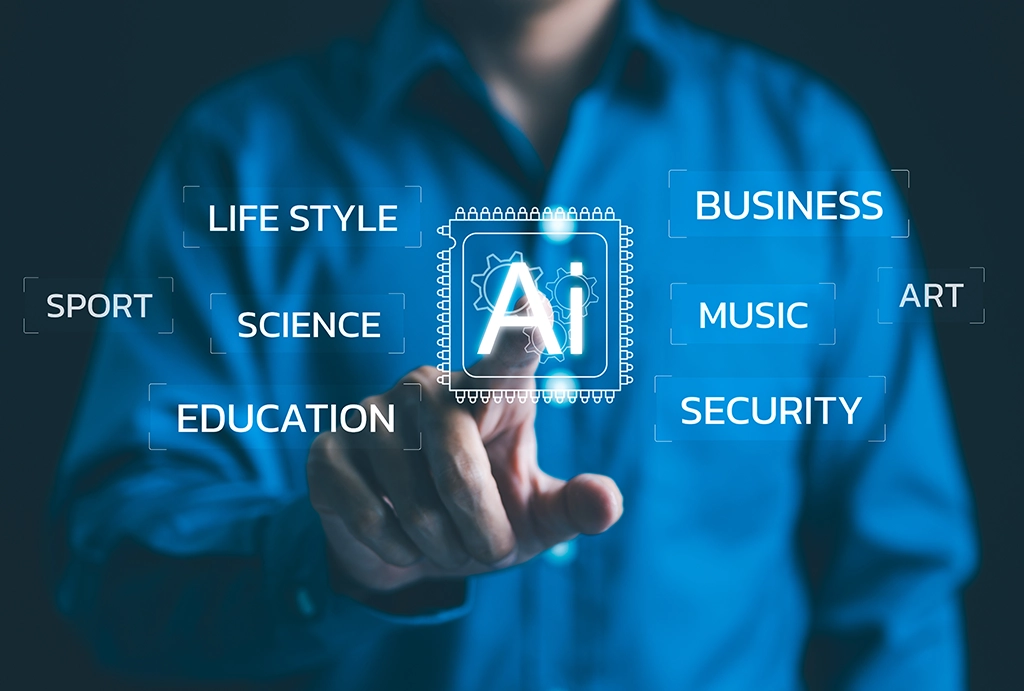The Future of AI in Higher Education: How Technology is Changing Learning
Higher education is only one of the many industries worldwide that artificial intelligence (AI) is transforming. Artificial intelligence (AI) in higher education systems is changing conventional learning paradigms in places like Gujarat, Rajasthan, Madhya Pradesh, Maharashtra, Bihar, and throughout Africa. This blog explores the many facets of artificial intelligence (AI), including its advantages, difficulties, and potential applications in higher education. Introduction: AI’s Role in Higher Education AI includes computer programs for operations like pattern recognition, problem-solving, and decision-making that generally call for human intellect. AI is used in higher education to improve teaching and evaluation methods, automate administrative duties, and customize learning experiences. With technology, education should become more efficient, accessible, and individualized for each student. How AI is Transforming Learning Experiences The incorporation of AI in higher education is reshaping the learning landscape in several key ways: Adaptive Learning Platforms: AI-driven systems analyze student performance in real time, adjusting content delivery to match individual learning paces and styles. This ensures that students receive material suited to their comprehension levels, promoting better understanding and retention. Intelligent Tutoring Systems: Beyond traditional classroom settings, AI-powered tutors offer additional support, clarifying concepts and providing explanations tailored to individual student queries. Automated Administrative Tasks: AI streamlines administrative processes such as scheduling, enrollment, and resource allocation, allowing educators to focus more on teaching and less on bureaucratic duties. AI-Powered Personalized Learning: A New Era Personalized learning, facilitated by AI, tailors educational content to meet the unique needs of each student. By analyzing data on student interactions, performance, and preferences, AI systems can: Identify Strengths and Weaknesses: Pinpoint areas where students excel or struggle, enabling targeted interventions. Customize Learning Paths: Develop individualized study plans focusing on areas needing improvement while reinforcing strengths. Provide Immediate Feedback: Offer real-time assessments and suggestions, allowing students to adjust their learning strategies promptly. Such personalization fosters a more engaging and effective learning environment, accommodating diverse learning styles and paces. Virtual Classrooms & AI Tutors: Enhancing Online Education The rise of virtual classrooms has been significantly bolstered by AI technologies: AI Tutors: Institutions like Physics Wallah in India have introduced AI tutors, such as Alakh AI’s “AI Guru,” providing 24/7 assistance to students. These virtual tutors address subject-specific questions and offer support beyond academics, delivering responses in both text and video formats. Interactive Learning Environments: AI facilitates the creation of immersive virtual classrooms where students can interact with content dynamically, participate in simulations, and engage in collaborative projects, regardless of geographical constraints. AI in Assessments & Grading: Improving Accuracy Assessment and grading are critical components of the educational process, and AI is enhancing these areas through: Automated Grading Systems: AI-powered tools can evaluate assignments and exams efficiently, providing consistent and objective grading. This reduces the workload on educators and minimizes human biases. Detailed Feedback Generation: Beyond grading, AI systems can generate comprehensive feedback, highlighting areas of improvement and suggesting resources for further study. Bias Reduction: By standardizing evaluation criteria, AI helps mitigate unconscious biases that may affect human graders, promoting fairness in assessments. The Benefits of AI in Higher Education The integration of AI into higher education offers numerous advantages: Enhanced Accessibility: AI-driven platforms can provide educational resources to remote and underserved regions, bridging gaps in educational equity. Efficiency in Administrative Processes: Automation of routine tasks allows institutions to allocate resources more effectively and focus on strategic initiatives. Data-Driven Decision Making: AI enables the collection and analysis of vast amounts of data, informing policy decisions, curriculum development, and resource allocation. Scalability: AI systems can handle large student populations, making quality education more scalable and sustainable. Challenges & Ethical Concerns of AI in Education While AI presents significant opportunities, its implementation in education is not without challenges: Data Privacy: Student data collection raises concerns about privacy and security. Institutions must ensure that robust data protection measures are in place. Equity Issues: There is a risk of exacerbating existing inequalities if access to AI technologies is uneven. Efforts must be made to ensure all students benefit from AI advancements. Dependence on Technology: Over-reliance on AI could diminish critical thinking and interpersonal skills. A balanced approach is necessary to maintain the human element in education. Job Displacement: Automating specific educational roles may lead to job losses among administrative and support staff. Strategies for workforce transition and upskilling are essential. Future Trends: What’s Next for AI in Learning? The trajectory of AI in education points toward several emerging trends: Augmented Reality (AR) and Virtual Reality (VR): Integrating AR and VR with AI will create immersive learning experiences, making complex subjects more accessible. Lifelong Learning Companions: AI could evolve into continuous learning partners, supporting individuals in skill development throughout their careers. Emotional AI: Future AI systems may be capable of recognizing and responding to students’ emotional states, further personalizing the learning experience. AI vs. Traditional Learning: A Comparison Artificial Intelligence is revolutionizing education, but how does it compare to traditional learning methods? Feature AI Powered Learning Traditional Learning Personalization Customizes learning paths based on student performance One-size-fits-all approach Flexibility Available anytime, anywhere via digital platforms Fixed classroom schedules Assessment AI-driven instant grading and feedback Manual grading, slower feedback Teacher’s Role Acts as a facilitator alongside AI tutors Central authority in knowledge delivery Student Engagement Interactive simulations, gamification, and real-time analytics Passive learning in lectures While AI enhances education by making it personalized and efficient, traditional learning fosters human interaction and soft-skill development. A hybrid model combining both approaches is likely the future of education. How Universities Are Adopting AI Technology Many universities in India and across Africa are integrating AI-driven tools into their academic structures. Institutions are using AI for: Smart Classrooms: AI-based virtual assistants help students with real-time queries and problem-solving. Predictive Analytics: Universities analyze student data to identify those at risk of dropping out and provide additional support. Automated Administration: AI assists in student admissions, attendance tracking, and timetable management. AI-Powered Career Guidance: Universities use AI-driven platforms to analyze students’ strengths and suggest the best career paths. Online AI Tutors: Some
The Future of AI in Higher Education: How Technology is Changing Learning Read More »












